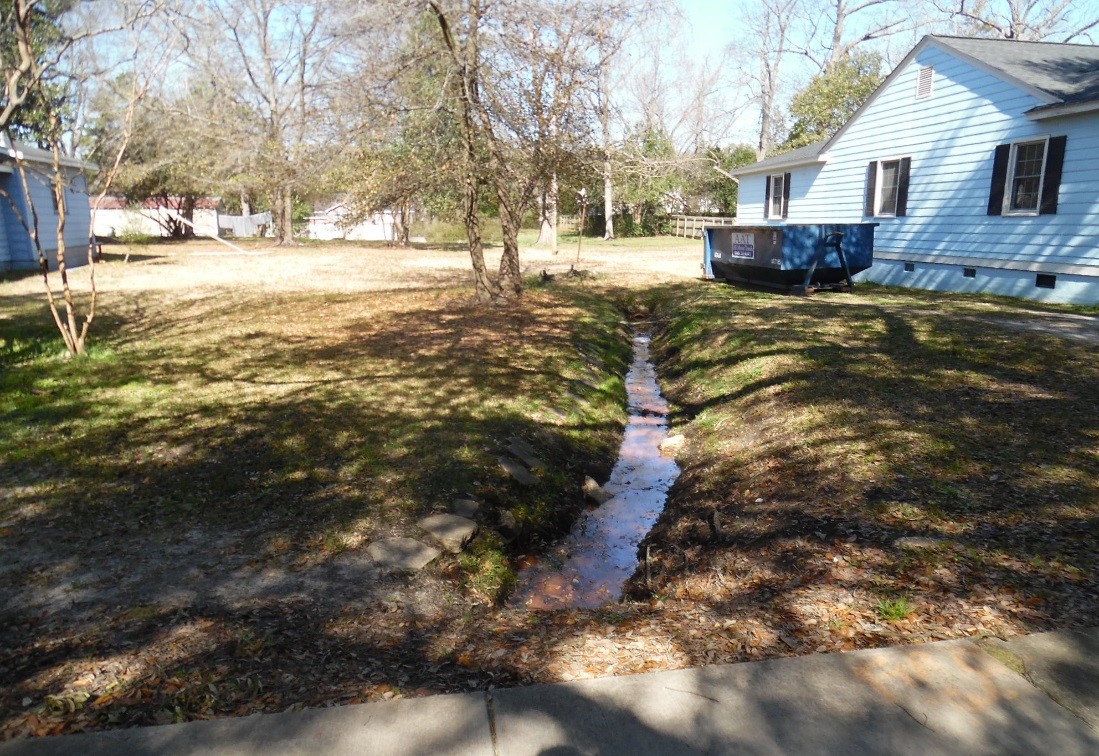A study from the American Society of Civil Engineers says that the condition of many wastewater treatment systems nationwide is poor, with aging pipes and inadequate capacity causing an estimated 900 billion gallons of untreated sewage to be discharged each year. The May report also projects that water and wastewater infrastructure needs are on track to be funded at 30 percent, leaving a significant investment gap.

Drainage issues in Georgetown.
South Carolina is not immune to the infrastructure challenge, but it may be better prepared than some states to assist with funding these projects. The SC Rural Infrastructure Authority was created to help close that gap and improve the infrastructure, not only to support and encourage economic development but also to protect the public’s health and the environment.
The RIA is now offering grants statewide to improve community sustainability and enhance competitiveness for economic development. Overall, the RIA will make about $25 million available in the next fiscal year for water and wastewater infrastructure. Last year, the cities of Darlington and Georgetown were funded to address significant drainage and flooding problems in local neighborhoods. The City of Walterboro will be making upgrades to its wastewater treatment plant, and the Town of Jonesville will improve its water distribution lines.
In addition, the RIA’s Office of Local Government provides loan financing through the State Revolving Fund in partnership with the SC Department of Health and Environment Control. Large and small communities that are making significant infrastructure investments can turn to the SRF for water and sewer projects that include improvements to water treatment plants, stormwater projects and the relocation of lines due to road widening projects.
The SRF offers long term, low interest rate financing to qualified borrowers. Interested municipalities should complete a project questionnaire and submit it to DHEC’s SRF section.
For the City of Lancaster, grants and loans from a combination of funding sources will be critical as officials work toward resolving a federal consent order for sanitary sewer overflows, estimated to cost $20 million. Last year, the city was awarded grants from RIA and the state commerce department’s Community Development Block Grant program. Now officials are working to secure a loan from the State Revolving Fund to upgrade and replace gravity sewer lines. Officials with the city continue to work with multiple funding agencies to address what will ultimately be a multi-year project.
"Our ability to address these significant system challenges was facilitated by the working relationship that was developed with RIA, SRF and CDBG in helping us secure funding for improvements," said Steven "Flip" Hutfles, Lancaster city administrator.
"The success stems in part from being able to get all the players in the same room and develop creative solutions to meet the financial demands of the project."
A workshop focusing on RIA grant guidelines and funding availability will be held Tuesday, July 19, 2016, at the Columbia Metropolitan Convention Center. To register or to learn more, contact the RIA at 803.737.0390 or info@ria.sc.gov.
| RIA grant applications are considered on a competitive basis in two funding cycles with applications due September 12, 2016 and March 13, 2017. |
